When choosing dental implants, one of the most important decisions concerns the material. The two main options are zirconia implants and titanium implants. Both have advantages and disadvantages in terms of cost, durability, aesthetics, and biocompatibility. Understanding these differences helps patients make an informed choice for long-term oral health. This guide explains everything you need to know about zirconia vs titanium implants.
What Are Titanium Implants?
Titanium has been the gold standard in implant dentistry for more than 50 years.
-
Composition: titanium or titanium alloys.
-
Main feature: excellent ability to fuse with bone (osseointegration).
-
Durability: highly resistant to corrosion and mechanical stress.
Advantages of Titanium Implants
-
Proven clinical success with decades of studies.
-
Very strong and durable, lasting 20+ years.
-
Excellent biocompatibility with bone tissue.
-
Flexibility: available in two-piece systems (implant + abutment).
-
Widely available worldwide.
Disadvantages of Titanium Implants
-
Possible allergic reactions in very rare cases.
-
Risk of gum discoloration if the metal becomes visible.
-
Less aesthetic compared to zirconia, especially in patients with thin gums.
What Are Zirconia Implants?
Zirconia implants are a newer alternative, made from zirconium dioxide (ceramic).
-
Aesthetic focus: tooth-colored, making them ideal for patients with high smile lines.
-
Biocompatibility: hypoallergenic and metal-free.
Advantages of Zirconia Implants
-
Natural white color improves aesthetics.
-
Metal-free: suitable for patients with titanium allergies.
-
High resistance to plaque accumulation.
-
Less risk of gum inflammation.
-
Better appearance in thin gum tissue.
Disadvantages of Zirconia Implants
-
Higher cost compared to titanium.
-
Limited long-term clinical studies (compared to titanium).
-
Usually available as one-piece systems (less flexibility).
-
Slightly lower resistance to fracture under extreme pressure.
Zirconia vs Titanium Implants: Cost Comparison
Cost is a key factor for many patients when comparing zirconia vs titanium implants.
Titanium Implant Costs
-
USA: $3,000 – $4,500 per implant (including crown).
-
Europe: €1,200 – €2,000 per implant.
-
Albania / Dental tourism destinations: €400 – €700 per implant.
Zirconia Implant Costs
-
USA: $4,000 – $5,500 per implant.
-
Europe: €1,800 – €2,500 per implant.
-
Albania / Dental tourism destinations: €600 – €1,000 per implant.
In general, zirconia implants are 20–40% more expensive than titanium implants due to their manufacturing process and aesthetic benefits.
Zirconia vs Titanium Implants: Biocompatibility
-
Titanium: excellent osseointegration, but rare cases of sensitivity or allergy exist.
-
Zirconia: fully hypoallergenic and less likely to cause soft tissue reactions.
For patients with metal sensitivities, zirconia implants may be the safer option.
Zirconia vs Titanium Implants: Durability
-
Titanium implants: extremely strong and durable, with a proven success rate above 95%.
-
Zirconia implants: very strong, but studies on 20+ year performance are still limited.
For patients needing long-term reliability, titanium remains the gold standard, while zirconia is promising but less documented.
Zirconia vs Titanium Implants: Aesthetic Outcomes
-
Titanium implants: can cause gray shadows under thin gums.
-
Zirconia implants: tooth-colored, providing a more natural look in the aesthetic zone.
This makes zirconia a popular choice for front teeth replacements.
Zirconia vs Titanium Implants: Pros and Cons Table
| Feature | Titanium Implants | Zirconia Implants |
|---|---|---|
| Durability | Proven 20+ years | Promising, fewer long-term data |
| Aesthetics | May cause gray shade in thin gums | Natural white, superior aesthetics |
| Biocompatibility | Excellent, rare allergies | Hypoallergenic, metal-free |
| Availability | Widely available | More limited |
| Cost | Lower | Higher (20–40% more) |
| Design | Two-piece systems available | Mostly one-piece |
Who Should Choose Titanium Implants?
Titanium is ideal for:
-
Patients looking for proven long-term results.
-
Individuals needing complex reconstructions.
-
Patients with strong chewing forces.
-
Those on a limited budget.
Who Should Choose Zirconia Implants?
Zirconia is ideal for:
-
Patients with titanium allergies or sensitivities.
-
Those prioritizing aesthetics, especially for front teeth.
-
Individuals seeking a metal-free, holistic approach.
-
Patients with thin or delicate gums.
Future of Implantology: Zirconia vs Titanium
Research on zirconia is rapidly growing, with new designs and multi-piece systems being developed.
While titanium remains the most reliable option today, zirconia implants are gaining popularity, especially in cosmetic and holistic dentistry.
The future likely involves both materials being used depending on patient needs.
Conclusion
So, when it comes to zirconia vs titanium implants, which is better?
-
Titanium implants are the gold standard: durable, proven, and cost-effective.
-
Zirconia implants are the rising alternative: aesthetic, hypoallergenic, and metal-free.
The best choice depends on the patient’s budget, health conditions, and aesthetic expectations.
A consultation with an experienced implantologist is essential to determine the most suitable option.


